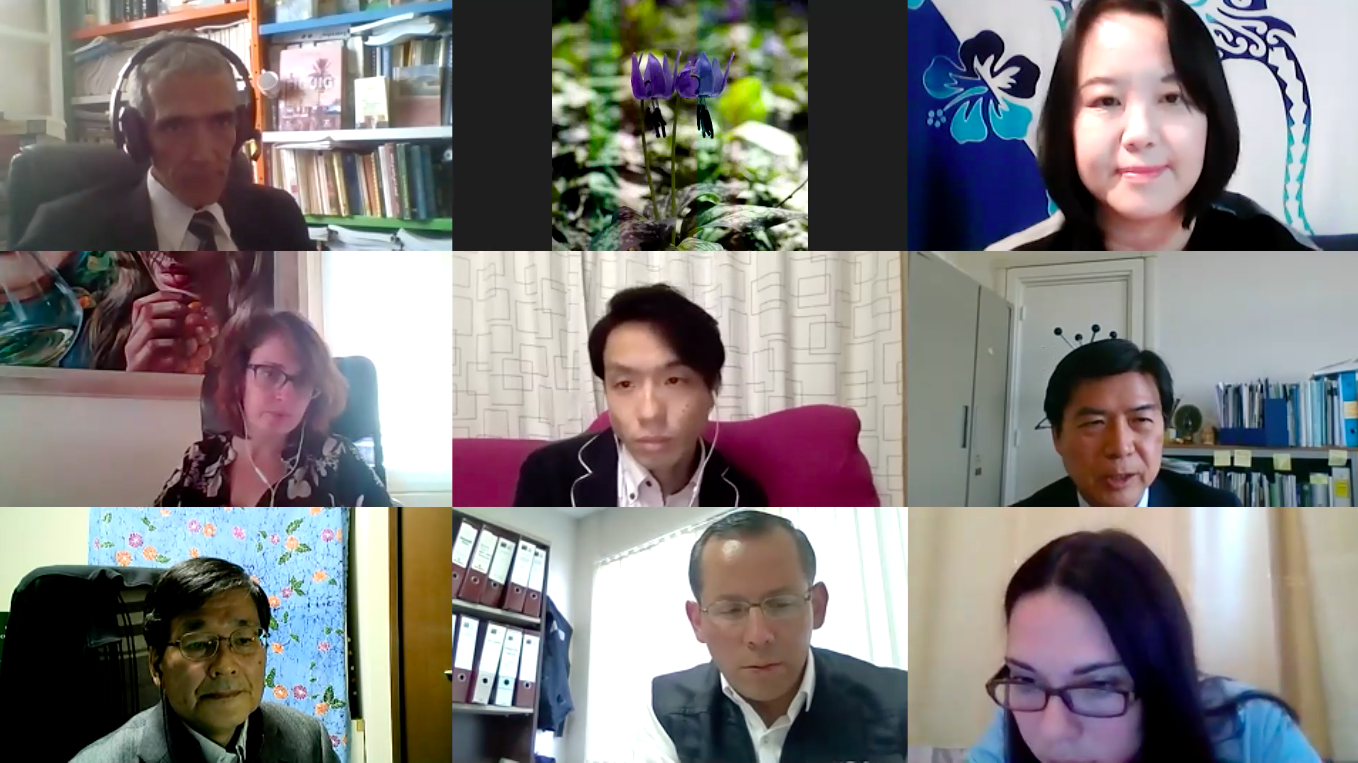The webinar “Building Back Better with Globally Important Agricultural Heritage Systems (GIAHS) from the COVID-19 Pandemic” was jointly organized by the United Nations University Institute for the Advanced Study of Sustainability Operating Unit Ishikawa Kanazawa (UNU-IAS OUIK) and Food and Agriculture Organization of the United Nations (FAO) on November 6, 2020. The webinar, for the first time ever, gathered GIAHS speakers from various regions around the world share on the challenges faced by GIAHS communities in managing impacts of the COVID-19, as well as discuss the resiliency of GIAHS in such a crisis and explore opportunities for recovery and building back better from COVID-19.
GIAHS is an FAO programme to designate remarkable traditional agricultural systems that safeguard the livelihoods of small-scale family farmers who practice sustainable agriculture based on local and indigenous knowledge. GIAHS not only produces food, but these time-tested systems also conserve biodiversity, preserve cultural heritages and their centuries-old wisdom can provide important lessons in building back better for the planet and people. This webinar, which received 300 registered participants, heard from representatives from GIAHS sites on how their communities are coping with COVID-19 impacts. The speakers also shared their views on how to build back better together with a harmonious relationship with nature and a prosperous future for GIAHS communities.
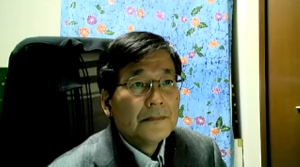 Facilitated by UNU-IAS OUIK Researcher Dr. Evonne Yiu, the webinar started with the opening remarks from UNU-IAS OUIK Director Watanabe Tsunao. Dr. Watanabe noted that the COVID-19 pandemic is an unprecedented crisis on humanity that affects everybody around the world, posed many challenges in our daily lives, and reminded us about our dependence of nature. He also pointed out, however, that the “new normal” under the COVID-19 can also bring opportunities. For example, the Noto GIAHS of Ishikawa Prefecture, Japan, where UNU-IAS OUIK office is also based, is becoming an attractive home for city residents, as rural farming communities are now perceived to be more resilient in social ties and self-sufficiency. Thus he said this webinar on GIAHS and Covid-19 is very timely in providing a platform for the GIAHS community worldwide to share our concerns, give mutual support, and explore opportunities together for recovery and building back better from COVID-19.
Facilitated by UNU-IAS OUIK Researcher Dr. Evonne Yiu, the webinar started with the opening remarks from UNU-IAS OUIK Director Watanabe Tsunao. Dr. Watanabe noted that the COVID-19 pandemic is an unprecedented crisis on humanity that affects everybody around the world, posed many challenges in our daily lives, and reminded us about our dependence of nature. He also pointed out, however, that the “new normal” under the COVID-19 can also bring opportunities. For example, the Noto GIAHS of Ishikawa Prefecture, Japan, where UNU-IAS OUIK office is also based, is becoming an attractive home for city residents, as rural farming communities are now perceived to be more resilient in social ties and self-sufficiency. Thus he said this webinar on GIAHS and Covid-19 is very timely in providing a platform for the GIAHS community worldwide to share our concerns, give mutual support, and explore opportunities together for recovery and building back better from COVID-19.
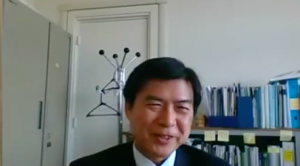 Mr Yoshihide Endo, the GIAHS Global Coordinator of the GIAHS Secretariat in FAO (Rome, HQ), then made his opening address and introduction on GIAHS to kickstart the series of presentations of the webinar. To date, there are 62 GIAHS designations in 22 countries, where these remarkable traditional agricultural systems were formed by farmers’ efforts to overcome harsh geographic and environmental conditions and passed on for generations. Sharing his observations on how the Covid-19 pandemic has affected farming communities worldwide and notwithstanding to only those of GIAHS communities, Mr Endo highlighted the following possible impacts: 1. Decreased demand for specific agricultural products due to closure of restaurants and hotels, suspension of events and diminished economy (for eg. lower income and increased unemployment); 2. Lower prices of agricultural products at farm levels (at the retail level, some product prices increase); 3. Disruption of supply chain at agricultural production due to lack of labor; 4.Disruption of supply chain at processing, transportation, and retailers; 5. Decreased non-farming incomes for farmers (for eg. tourism-related income). As GIAHS are sustainable agricultural systems which are designated based on five key holistic criteria – 1. Food and livelihood security; 2. Agro-biodiversity; 3. Local and Traditional Knowledge systems; 4. Cultures, value systems and social organisations; 5. Landscapes and Seascapes Features – Mr Endo believes that GIAHS, with their time tested technologies and practices, could be resilient to external shocks such as natural disasters and adverse climate conditions. However, the Covid-19 pandemic also reminded us that it is also important to examine how GIAHS can be resilient to social, economic and health shocks. The purpose of this webinar is thus to hear from the GIAHS’ first-hand experience to gather knowledge and insights.
Mr Yoshihide Endo, the GIAHS Global Coordinator of the GIAHS Secretariat in FAO (Rome, HQ), then made his opening address and introduction on GIAHS to kickstart the series of presentations of the webinar. To date, there are 62 GIAHS designations in 22 countries, where these remarkable traditional agricultural systems were formed by farmers’ efforts to overcome harsh geographic and environmental conditions and passed on for generations. Sharing his observations on how the Covid-19 pandemic has affected farming communities worldwide and notwithstanding to only those of GIAHS communities, Mr Endo highlighted the following possible impacts: 1. Decreased demand for specific agricultural products due to closure of restaurants and hotels, suspension of events and diminished economy (for eg. lower income and increased unemployment); 2. Lower prices of agricultural products at farm levels (at the retail level, some product prices increase); 3. Disruption of supply chain at agricultural production due to lack of labor; 4.Disruption of supply chain at processing, transportation, and retailers; 5. Decreased non-farming incomes for farmers (for eg. tourism-related income). As GIAHS are sustainable agricultural systems which are designated based on five key holistic criteria – 1. Food and livelihood security; 2. Agro-biodiversity; 3. Local and Traditional Knowledge systems; 4. Cultures, value systems and social organisations; 5. Landscapes and Seascapes Features – Mr Endo believes that GIAHS, with their time tested technologies and practices, could be resilient to external shocks such as natural disasters and adverse climate conditions. However, the Covid-19 pandemic also reminded us that it is also important to examine how GIAHS can be resilient to social, economic and health shocks. The purpose of this webinar is thus to hear from the GIAHS’ first-hand experience to gather knowledge and insights.
Four speakers from various regions of the world then briefly introduced their GIAHS and reported on the Covid-19 situation in their communities. Representing Asia and the Pacific Region was Mr Tomonori Tasaki, Officer of the Takachiho Town Office, Miyazaki Prefecture (Takachiho-Shiibayama GIAHS), Japan. While Mr Tasaki reported that they had not faced any critical challenge against the conservation of the GIAHS or agricultural production as a whole due to COVID-19, as most products are consumed domestically and near their GIAHS site. But the demand for some agricultural products, such as ornamental flowers, declined as most social ceremonies were cancelled. The traditional Kagura dance rituals to pray for good harvest held by farming communities throughout the Takachiho-Shiibayama GIAHS in winter are mostly expected to be called off or scaled down to private rituals held in small numbers. Tourism was also badly hit to an almost complete halt. However, this is provided with the GIAHS community to rethink how to have quality tourism and the number of tourist visits. One new attempt is the “GIAHS Cast Project” launched this year to create private GIAHS tours to experience the local lifestyle, foster professional GIAHS casts (local guides), and explore how their GIAHS can be more sustainable.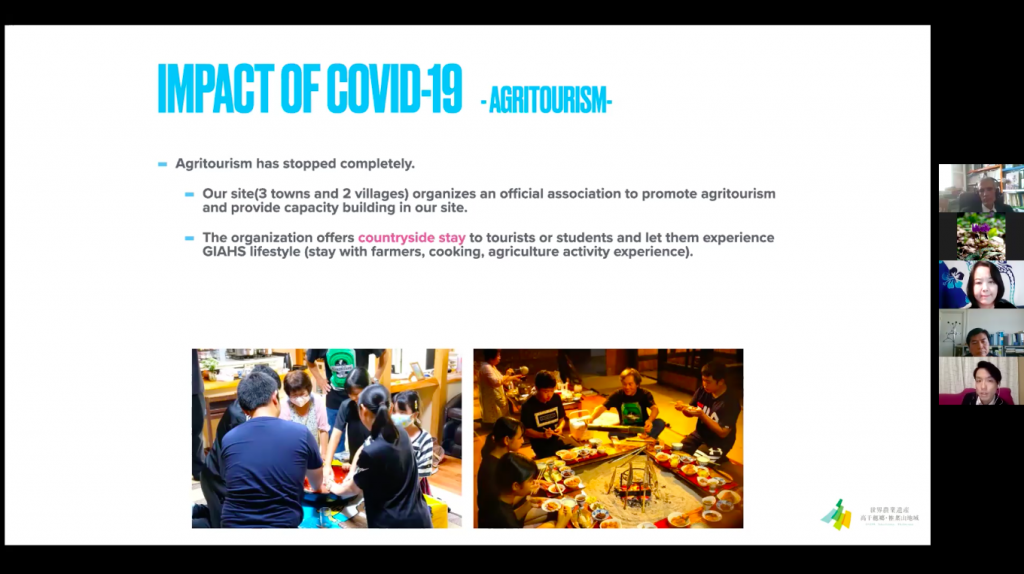

From the Africa region, Dr Hatem Zitouni, Assistant Professor at the University of Gafsa and President, Association pour la Sauvegarde de la Médina de Gafsa (ASM GAFSA)
made a presentation for the Gafsa Oases GIAHS in Tunisia. While the Covid-19 pandemic has disrupted food supply within the country, it has also increased the demand for domestic farm produce and heightened the interest in organic farming. Farmers in Gafsa Oases GIAHS understand the urban-rural interdependency in times of crisis and can manage resource flow and collective resilience. He informed that many people who were displaced of their jobs in the cities now returned to their hometown in the GIAHS. Many of them have since found new employment in farming and now choose to stay home and not go back to the cities as they also take this opportunity to revalue their lifestyle. Thus Covid-19 not only made the locals revisit their relationship with their GIAHs and nature, but has also enabled them to established a self-sufficient, agricultural and ecological sphere within the country, between the rural and urban.
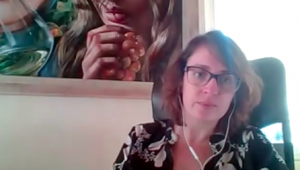 Sharing from Europe region, Ms Chiara Mattiello, Marketing and Communication Manager, Soave Consorzio, reported on the Soave Traditional Vineyards GIAHS in Italy. Firstly, wine sales have been badly hit by around a 80-90 per cent drop since the Covid-19 pandemic outbreak in Italy. There is also a lack of labour, as many foreign workers on the vineyards returned to their hometowns. So now vineyard farmers within the GIAHS region, more than ever, are helping out each other with the farming and harvests, and this has enhanced the communal ties and social cohesion. Although wine may often be viewed as non-essential good, Ms Mattiello reminded us that behind every bottle of wine is a family. She emphasized that vineyards and winemaking are not only an industry but is the fundamental way of life in the Soave GIAHS. While Ms Mattiello is heartened that the unity of the farmers and the GIAHS community has enabled farming activities to continue and that no projects of the Soave Consorzio have been stopped as a result of Covid-19, she is also worried about how they can pull through next year as they will face many challenges, in particular with cash flow, and that they foresee a full recovery can only be achieved in 2024.
Sharing from Europe region, Ms Chiara Mattiello, Marketing and Communication Manager, Soave Consorzio, reported on the Soave Traditional Vineyards GIAHS in Italy. Firstly, wine sales have been badly hit by around a 80-90 per cent drop since the Covid-19 pandemic outbreak in Italy. There is also a lack of labour, as many foreign workers on the vineyards returned to their hometowns. So now vineyard farmers within the GIAHS region, more than ever, are helping out each other with the farming and harvests, and this has enhanced the communal ties and social cohesion. Although wine may often be viewed as non-essential good, Ms Mattiello reminded us that behind every bottle of wine is a family. She emphasized that vineyards and winemaking are not only an industry but is the fundamental way of life in the Soave GIAHS. While Ms Mattiello is heartened that the unity of the farmers and the GIAHS community has enabled farming activities to continue and that no projects of the Soave Consorzio have been stopped as a result of Covid-19, she is also worried about how they can pull through next year as they will face many challenges, in particular with cash flow, and that they foresee a full recovery can only be achieved in 2024.
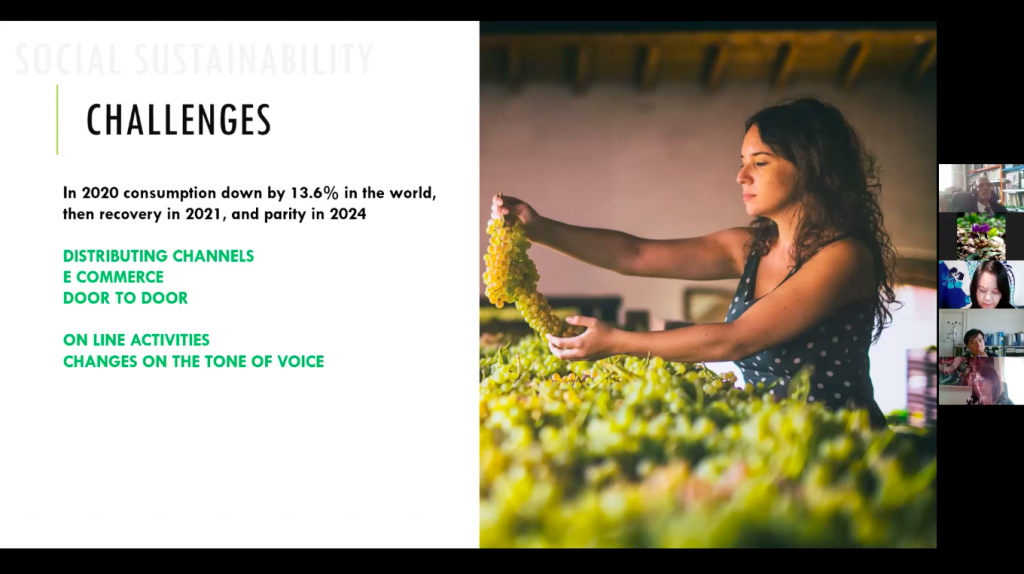
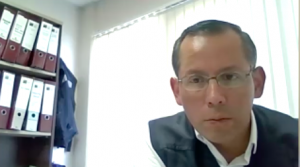 The last presentation from the Latin America region was made by Mr Daniel Quiñilen Pereira, Agricultural Expert, The Institute for Agricultural Development under the Ministry of Agriculture on the Chiloé Agriculture GIAHS in Chile. He was joined by Ms Andrea Curumilla, farmer and President of the GIAHS (SIPAM) Cooperative in Chiloé, as well as Ms Constanza Toledo, who interpreted their Spanish presentation to English. Mr Pereira shared that the Covid-19 has made GIAHS farmers more reluctant to take credit risks in the face of local and national economic uncertainty over 2021. In addition, there is a shortage of agricultural inputs (fertilizers etc), equipment and machinery due to limited access and availability compared to before Covid-19. Rural tourism is also affected by the record low number of visitors in the GIAHS area, and sales of traditional crafts also suffered a drop in sales. However, livestock farming has not been affected as domestic products and local trade are now more favoured with high prices and the sale of milk has continued to be stable. As Chiloé is a region of islands, it also helped boost local sales, given that the closure of the islands. Vegetables are also selling well as consumers tend to avoid shopping malls and purchase for local markets, and now revalue food in general grown in healthy, low-cost environments. This Covid-19 pandemic has also organized communities to cope with the challenges in production and sales.
The last presentation from the Latin America region was made by Mr Daniel Quiñilen Pereira, Agricultural Expert, The Institute for Agricultural Development under the Ministry of Agriculture on the Chiloé Agriculture GIAHS in Chile. He was joined by Ms Andrea Curumilla, farmer and President of the GIAHS (SIPAM) Cooperative in Chiloé, as well as Ms Constanza Toledo, who interpreted their Spanish presentation to English. Mr Pereira shared that the Covid-19 has made GIAHS farmers more reluctant to take credit risks in the face of local and national economic uncertainty over 2021. In addition, there is a shortage of agricultural inputs (fertilizers etc), equipment and machinery due to limited access and availability compared to before Covid-19. Rural tourism is also affected by the record low number of visitors in the GIAHS area, and sales of traditional crafts also suffered a drop in sales. However, livestock farming has not been affected as domestic products and local trade are now more favoured with high prices and the sale of milk has continued to be stable. As Chiloé is a region of islands, it also helped boost local sales, given that the closure of the islands. Vegetables are also selling well as consumers tend to avoid shopping malls and purchase for local markets, and now revalue food in general grown in healthy, low-cost environments. This Covid-19 pandemic has also organized communities to cope with the challenges in production and sales.
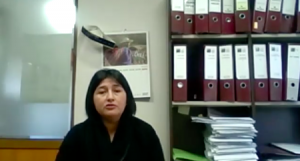 Ms Curumilla expressed her appreciation for the GIAHS programme, which was beneficial to her community, in particular in promoting their products, as well as helping to keep native and indigenous knowledge on traditional farming, and in turn contributes to preserving their cultural identity in a recognizable way.
Ms Curumilla expressed her appreciation for the GIAHS programme, which was beneficial to her community, in particular in promoting their products, as well as helping to keep native and indigenous knowledge on traditional farming, and in turn contributes to preserving their cultural identity in a recognizable way.
 At the panel discussion, Dr Evonne Yiu summed up the challenges and changes observed in the four GIAHS sites. Due to Covid-19 impacts, the challenges faced include a fall in sales of some agricultural products, tourism, agricultural and non-agricultural income, as well as the shortage of labour and other agricultural inputs needed for production. Festivals and events were also cancelled, and interactions outside of the community were restricted. There are also changes brought about by Covid-19, which include adopting new marketing and sales strategies, the use of online-based events and services, and that communities are more organized to provide each other with mutual support. Most importantly, the attitudes towards farming and rural lifestyles have also changed for the better amongst the local people and the general public, especially city urbanites, who now are more supportive of domestic products. Having learned the challenges and changes, the speakers discussed the following topics; they include how GIAHS on communities can recover from Covid-19 pandemic? How the Covid-19 situation has shown the resilience of GIAHS? What are the new opportunities for rural farming communities in GIAHS?
At the panel discussion, Dr Evonne Yiu summed up the challenges and changes observed in the four GIAHS sites. Due to Covid-19 impacts, the challenges faced include a fall in sales of some agricultural products, tourism, agricultural and non-agricultural income, as well as the shortage of labour and other agricultural inputs needed for production. Festivals and events were also cancelled, and interactions outside of the community were restricted. There are also changes brought about by Covid-19, which include adopting new marketing and sales strategies, the use of online-based events and services, and that communities are more organized to provide each other with mutual support. Most importantly, the attitudes towards farming and rural lifestyles have also changed for the better amongst the local people and the general public, especially city urbanites, who now are more supportive of domestic products. Having learned the challenges and changes, the speakers discussed the following topics; they include how GIAHS on communities can recover from Covid-19 pandemic? How the Covid-19 situation has shown the resilience of GIAHS? What are the new opportunities for rural farming communities in GIAHS?
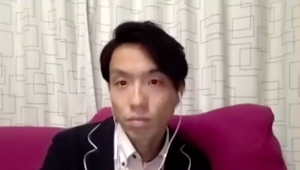 Mr Tasaki said that the key factor of GIAHS recovery and resiliency is the strong sense of community spirit and effort within the GIAHS region, amongst farming and non-farming communities, have helped to overcome the challenges of Covid-19 in terms of food supplies and support. Such closed community ties could be a reason why GIAHS is resilient to socio-economic shocks. Ms Mattiello added that the community ties might not necessarily have to come from within the GIAHS communities, but also with external partners and even abroad. She shared that her GIAHS has received generous support from the wine dealers and restaurants in Japan even during these challenging times and is extremely grateful for their kindness. Dr Yiu pointed out that the social organizations, especially GIAHS promotion associations or GIAHS consortiums that are formed to conserve the GIAHS through the collaboration of multiple stakeholders and institutions, could explain how GIAHS communities could come together so quickly to deal with the challenges. In order to recover from Covid-19, Dr Hatem urged that we should look for in-site solutions within the GIAHS, and to do so, we need to further enhance the functions of the GIAHS community.
Mr Tasaki said that the key factor of GIAHS recovery and resiliency is the strong sense of community spirit and effort within the GIAHS region, amongst farming and non-farming communities, have helped to overcome the challenges of Covid-19 in terms of food supplies and support. Such closed community ties could be a reason why GIAHS is resilient to socio-economic shocks. Ms Mattiello added that the community ties might not necessarily have to come from within the GIAHS communities, but also with external partners and even abroad. She shared that her GIAHS has received generous support from the wine dealers and restaurants in Japan even during these challenging times and is extremely grateful for their kindness. Dr Yiu pointed out that the social organizations, especially GIAHS promotion associations or GIAHS consortiums that are formed to conserve the GIAHS through the collaboration of multiple stakeholders and institutions, could explain how GIAHS communities could come together so quickly to deal with the challenges. In order to recover from Covid-19, Dr Hatem urged that we should look for in-site solutions within the GIAHS, and to do so, we need to further enhance the functions of the GIAHS community.
Responding to the question if local people who had left Chiloé region to work in cities now find life in their hometown more attractive due to Covid-19 situation, Mr Pereira said that way before Covid-19, there have been many efforts to maintain the cultural identity in Chiloé Agriculture GIAHS, so the native citizens are already very attached to their land and GIAHS. In fact the majority of the people have agricultural-related livelihoods, and schools here even teach farming skills to children. Moreover, the geographical context of the Chiloé island and archipelago allows a diverse range of farming products, which helped them to be self-sufficient during this difficult time.
Concluding, Mr Endo highlighted four points on how GIAHS communities coped with Covid-19: 1. Multiple crop production rather than mono-crop production of GIAHS site is helpful to mitigate market risks, 2. Reliance on local and nearby markets, 3. Flexible adaptation to the use of e-commerce and online marketing, and 4. The long-standing mutual supporting organizations of traditional agriculture. He also reckoned that these points are not limited to only GIAHS sites but also all farming communities. He looks forward to collecting more information from GIAHS sites to do more analysis on the resiliency of GIAHS in the future and thanked the speakers for the helpful insights.
Closing, Dr Yiu hoped that this webinar could kickstart a series of dialogues on GIAHS to see how other GIAHS communities are coping with Covid-19 to build back a better tomorrow and that participants have found the webinar useful to inspiring their interest in GIAHS.



